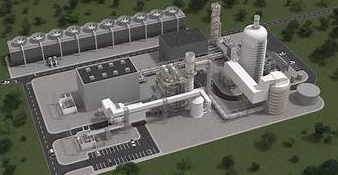The country aims to reduce carbon emissions while transitioning to a net-zero future.
Singapore has announced a grant call to study carbon capture and storage (CCS) technologies for natural gas power plants. Despite efforts to diversify energy sources, natural gas is expected to meet over 50% of Singapore’s energy needs by 2035.
CCS Deployment
Deputy Prime Minister Gan Kim Yong unveiled the initiative on October 21 at the Singapore International Energy Week. Two CCS methods will be studied:
Post-combustion capture: Extracting CO2 from exhaust gases after natural gas combustion.
Pre-combustion capture: Capturing CO2 during hydrogen production from natural gas.
The captured CO2 would be stored in deep underground formations, either locally or overseas.
Singapore’s Carbon Capture Plans
The government is developing a CCS infrastructure on Jurong Island, aiming to begin operations by 2030. Collaborations with international partners, such as Indonesia and the S Hub consortium (ExxonMobil and Shell), will evaluate the feasibility of cross-border CCS projects. S Hub plans to store 2.5 million tonnes of CO2 annually by 2030.
Challenges and Costs
The cost of CCS remains a significant hurdle. The weighted average cost of capturing carbon from industrial sources is approximately USD 85 per tonne, with additional expenses for shipping and storage.
By 2030, Singapore’s carbon tax will rise to $50-$80 per tonne, up from $25 currently. However, experts note that this may not sufficiently offset CCS project costs.
Advancements in CCS Research
Local scientists are testing innovative CCS methods, including:
Metal-organic frameworks: Sponge-like materials for selective CO2 absorption.
Membrane technology: Adapting water filtration membranes for CO2 capture.
These approaches aim to make CCS safer, more efficient, and economically viable.
Future Goals
Singapore plans to achieve net-zero emissions by 2050 and is also exploring geothermal and nuclear energy. The country emphasizes the importance of emerging technologies in meeting its climate commitments.


